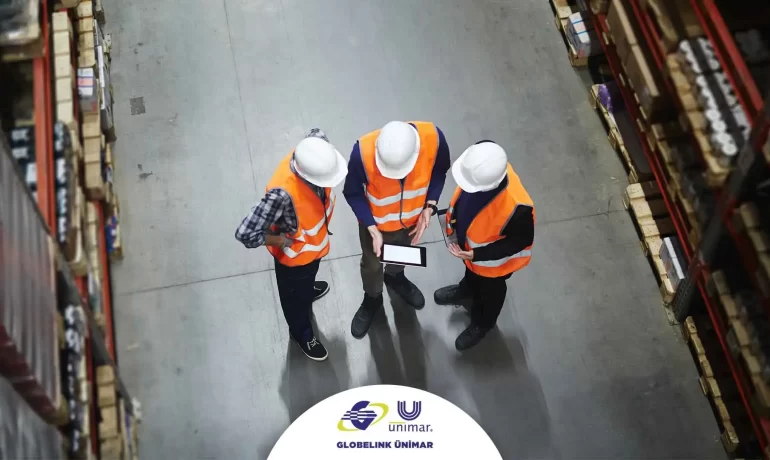
- March 1, 2021
- Blog
Although 5G was launched to boost the mobile market, the extent of the promises it made has prompted the beginning of one of the hottest areas of trade wars. 5G is expected to make many topics more effective, such as smart cities, drones, autonomously connected vehicles, logistics and precision agriculture in the next 10 years.
5G will start major changes in the business and the industrial world, as well as our daily lives. While 4G LTE, the previous generation, has ushered in a new era in the digital economy, 5G will be transformative in a similar way when its ability to support machine-to-machine (M2M) communications are taken into consideration.
Network operators will have the chance to benefit from a wider range of IoT (Internet of Things) opportunities, especially with industry, thanks to 5G. According to research conducted by Ericsson, the business-to-business (B2B) interaction provided by 5G offers a unique growth opportunity and offers a $ 700 billion market opportunity for network operators by 2030.
Although 5G was launched to boost the mobile market, the extent of the promises it made has prompted the start of one of the hottest areas of trade wars. 5G is expected to make many topics more effective such as autonomous factories, smart cities, unmanned aerial vehicles, autonomously connected vehicles, remote health, public surveillance and security, and precision agriculture in the next 10 years. Ericsson estimates that this automation market will generate $ 107 billion by 2030, and it expects $ 89 billion of connected vehicles to emerge in the next 10 years worldwide.
The increasing number of IoT devices means the efficiency of 5G will be also enhanced. 5G will further increase connectivity for these devices, thanks to network slicing, improved spectrum efficiency and better power management. As a result, businesses will be managed better with less latency than is possible. They will be able to track goods in real-time throughout the supply chain and track products from the retail shelf to homes.
Based on researches it has conducted, Ericsson expects $ 89 billion of connected vehicles to emerge in the next 10 years worldwide.
5G’s power to change all industries and life contributes to the definition of global leadership, as well. Therefore, there is a global race in this area. With the raging race, the urgency of investments in digital infrastructure is rising in tandem. Qualcomm estimates that the global 5G value chain will be $ 3.5 trillion by 2035 and states that another $ 12.3 trillion should be added in terms of “5G-powered” growth.
Rapid and large-scale deployment of 5G will not only help countries achieve global and technological superiority but will also contribute to the realization of national goals. 5G will support the country’s economy’s transition to the fourth industrial revolution (Industry 4.0). It will promote a stronger, more innovative and more competitive business environment; this will support sustainable and high-paying jobs. Finally, it will offer increased access, benefiting both local communities and the private sector in under-served areas.
Major economies around the world, especially Asia, are working aggressively to develop 5G networks. The Chinese government is actively pushing for 5G amid a broader effort to strengthen its digital economy, including through its “Made in China 2025” initiative. Australia, the UK and others will also test 5G networks in the coming months/years. The US Wireless Networks Association (CTIA) forecasts that US telecoms will invest $ 275 billion in 5G technology, including fiber optic cables, small cells and other 5G network infrastructure. All the major US telecom companies are testing 5G in dozens of cities.
5G Will Change the Codes of Logistics
With 5G, not only people but also everything from small to large will be in communication with each other. Thanks to the communication infrastructure to be used, it will play a serious role in strengthening transformations in many areas such as efficiency, sustainability, prosperity, and social life by triggering innovation in all vertical sectors. It will complement what has been achieved with the evolution of 5G LTE and with the new capabilities it adds, it will bring the whole world and all objects into communication and cooperation that will not break with each other. The factors that 5G has such as ultra-reliable fast communication, large machine type communication, high data rate and data capacity, energy and cost efficiency are expected to launch important changes, especially in energy, automotive, logistics and transportation, health, environment and agriculture, media and entertainment industries.
Thanks to its speed, 5G will change the codes of the supply and logistics industry by ensuring that many data are transferred faster at the same time. Although many companies operating in the logistics industry have been using IoT devices such as GPS and wireless connection systems at the point of shipment tracking in recent years, 5G has the capacity to carry all business processes of the industry to a higher level.
5G is expected to revolutionize the worldwide supply chain as it becomes available in more markets over the next few years. According to Research and Markets’ Global 5G Market forecast report, the sector will grow to $ 827 billion in 2028, the fastest growth in energy and utilities (130%). Automotive and logistics are thought to be the other two industries with the highest penetration rate. The two segments are expected to grow by 120 percent and 118.7 percent, respectively, in the 5G area.
Rapid and large-scale deployment of 5G will not only help countries achieve global and technological superiority but will also contribute to the realization of national goals.
Exponentially faster data rates and reduced latency will give rise to a more responsive network to support this transformation, while also paving the way for more Internet-enabled smart devices to be integrated along the logistics supply chain. This will render logistics processes faster, safer and more reliable.
Sensors with 5G technology will facilitate stock tracking in warehouses. In addition, the planning processes that pass from human to artificial intelligence will ensure that the work is more controlled at the product supply point. It is thought that the greatest convenience that 5G will offer to the logistics industry will be at the point of delivery time and product tracking. Thanks to this advanced technology, information about the location of the shipped products can be accessed instantly, as well as waiting durations, which can take weeks and sometimes even months, will be significantly shortened.
Thanks to the smart supply method provided by 5G, external factors which may have a direct impact on the products during transportation or storage such as temperature, humidity and pressure can be controlled. Costs will be minimized since the fact that everything in the logistics industry starts to progress with digital systems will minimize the losses and inaccuracies in business processes. In order for the logistics industry to improve its Management and automation in the supply chain, it should integrate sensors, communication devices, cloud computing networks and data analytics engines into the system and use them effectively.
Five Benefits of 5G for Logistics
- Digitalized Logistics: The area to be triggered by 5G most will be IoT. Connected devices will catalyze its use and create opportunities for new uses in logistics. IoT is expected to open up a market of 1.9 trillion in logistics with 5G.
- Minimizing supply chain risk: According to research by Moor Insights & Strategy, nearly 90 percent of logistics providers consider the lack of supply chain visibility to be one of the biggest challenges in the industry. According to DHL’s latest Logistics Trend Radar report, the wide range of low-energy benefits of 5G will pave the way for new tracking and condition monitoring capabilities available globally for parcels and devices.
- Autonomous trucks: The difference between 5G from 4G is that it can transmit data 50 times faster. The less time it takes for an autonomous truck to make a decision, the safer the roads and the more reliable deliveries. Ericsson, Einride and Telia have teamed up to produce an autonomous and 5G-powered truck.
- Faster and safer port operations: Intelligent unmanned ground vehicles can automatically load and unload, as well as publish cargo inventory information so that they can gain access into controlled areas.
- Augmented reality: Sophisticated AR applications used in logistics will be significantly enhanced if supported on a 5G network. It will reduce the possibility of error and increase the efficiency of the staff managing warehouse operations.
Turkey is Planning to Deploy 5G in 2021
Turkey’s main goal for 5G, on which it started to work years before, is to make a domestic and national introduction. Offering solutions on a global scale with domestic and national firms which have broadband communication infrastructure such as Ulak, Turkey aims to raise the rate of domestic production, which is 23 percent in 4.5G, to 50 percent. Conducting comprehensive studies about all the industries to be affected by 5G, Turkey is planning to deploy this technology synchronically with other countries of the world under the leadership of the Information Technologies and Communication Authority (BTK) in 2021.
In this context, the “Communication Technologies Cluster”, which was realized by the BTK with the gathering of more than 130 domestic manufacturers, works to produce the hardware and software that mobile operators will need while switching to 5G technologies. With the “End-to-End Domestic and National 5G Communication Network Project” run by companies and supported by TUBITAK, it is aimed to develop critical network hardware and software such as 5G base stations, 5G core network, 5G Business Support software, and 5G virtualization platform.
Artificial Intelligence is Both Changing and Transforming
Today, we can see the clues that we will
The Future of the Cargo Market is Shaped by e-commerce
The e-commerce industry has been growing rapidly since the



